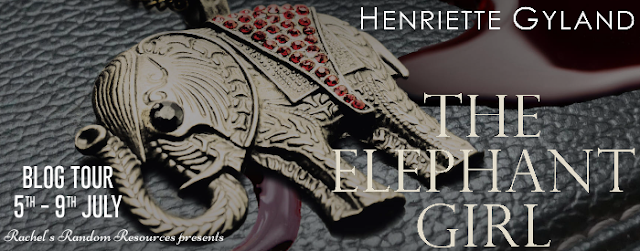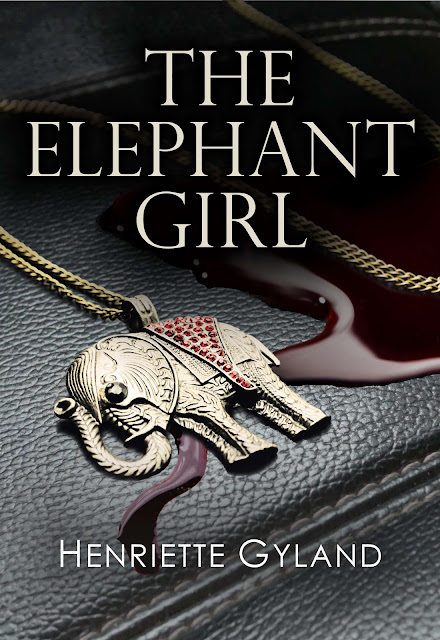The Elephant Girl
I think I saw you …
It’s been twenty years, and Helen Stephens has come home to stay.
And to get revenge on the person who murdered her mother. If only she knew who
it was … But nothing is ever black or white, and when she rents a room in a
house full of ex-offenders, the events of that fateful day blur even further,
leading her to question her resolve and her memory.
Jason Moody, who runs the half-way house, has his own shame. When
he uncovers her intent, he begins to suspect that someone close to him could be
involved …
A coincidence? Or is there something else going on?
Purchase Links
UK - https://www.amazon.co.uk/Henriette-Gyland/e/B00AVZQQZW
US - https://www.amazon.com/Henriette-Gyland/e/B00AVZQQZW
Author Bio
–
Originally from Denmark, Henriette Gyland (who also writes as Ella
Gyland) has lived in London for many years, surrounded by her family, cats,
books and the Scandinavian hygge she tries to create everywhere she goes. As a
linguist she loves playing with words and language, and she's addicted to
story-telling. She also believes strongly in social responsibility and
sustainable living.
Social Media
Links –
Website: https://henriettegyland.wordpress.com/
Facebook author page: https://www.facebook.com/EllaGyland
Twitter: @henrigyland
Instagram: https://www.instagram.com/henrigylandwrites/
BIRTH OF A STORY
There are undoubtedly some
dark themes in The Elephant Girl – death of a mother, epilepsy, child
abandonment, revenge, self-discovery etc. – but it’s also written in a genre
I’m particularly fond of: romantic suspense. You could say that romance was my
first love and, indeed, when I started writing, I tried to write to write a
straight-forward romantic novel (if there is such a thing…)
And
failed.
Miserably.
As
rejections piled up, I realised this was in particularly due to one problem:
the body count. No matter how hard I tried, I just couldn’t stop killing off my
characters!
That’s
not to say that a romantic novel can’t and/or doesn’t deal with heavy themes
such as death, grief, loss, abandonment and similar. Romantic fiction is a
broad church spanning a wide range of subgenres, and most of them do deal with
these matters, sometimes with a light touch, but nevertheless leaving me feeling
satisfied after I’ve finished reading the book. I feel I’ve learned something
about the human condition, and this is what all writers strive to achieve,
whether consciously or not.
Going
back to the body count in my books, there’s one subgenre of the romantic novel
where the bodies are “allowed” to pile up, so to speak :-), and under
suspicious circumstances too, and that’s the romantic suspense novel. There’s
also an element of danger (the thriller aspect), when the hero/heroine get
close to discovering that what they thought to be the truth turned out to be a
lie, perhaps perpetuated over several years. The moment when they uncover what
actually did happen and how it impacts on their own lives in the
present.
And,
of course, in romantic suspense, which is essentially a crime novel as much as
it is a romantic novel, there’s always a dastardly villain, the one who
perpetrated the crime and perhaps irrevocably changed the lives of the main
characters, and who has to get their come-uppance (heh-heh).
So,
why epilepsy? That’s an unusual one, you might say.
Writers
are like magpies, although rather than simply steal shiny things we nick our
inspiration from the world around us, either from personal experiences, from a
random news item, someone else’s story, snippets of conversation overheard on
the bus and so on. It could be anything, and it’s not always easy to trace back
to where it came from because it often enters the writer’s mind subconsciously.
At
the time of writing The Elephant Girl though, I was witnessing a friend
slowly deteriorate from an inoperable brain tumour and subsequently die shortly
before her 40th birthday. She wasn’t one of my closest friends, and
I found it hard to express my sadness and grief because it seemed as though
this was the domain of her family and not for me to “highjack”. So I poured my
feelings into a fictional story.
Another
friend (thankfully still alive!) had, a few years previously, opened up about living
with epilepsy, a condition she’d suffered from since she was in her early 20s,
and which affects her life in ways which can be difficult for outsiders to
comprehend.
My
writer magpie brain kicked in, and I ended up combining the two. I wanted to
honour my friend who had died, and I wanted to write about epilepsy, a
so-called hidden disability, and to do so respectfully. It’s a condition which
is often misunderstood to the extent that many sufferers choose not to talk
about it for fear of being stigmatised.
I
also wanted the dead bodies, the revenge, and the rest. I wanted the STORY! The
Elephant Girl was born :-)
On
a final note, fortunately, due to campaigns by various charities, including
Epilepsy Action, there’s growing support and openness about the condition, and
I hope this support will continue to grow. If in any way my novel can help
tackle the stigma surrounding epilepsy, I shall be very happy.




No comments:
Post a Comment